ProMosaik interviews Mag. Viviane Tassi Bela about Breast Ironing in Cameroon
Hi
all,
all,
For
sure you remember that ProMosaik e.V. has published the German and Italian
translation of the study conducted by Rebecca Tapscott in Cameroon about breast
flattening.
sure you remember that ProMosaik e.V. has published the German and Italian
translation of the study conducted by Rebecca Tapscott in Cameroon about breast
flattening.
See
here:
here:
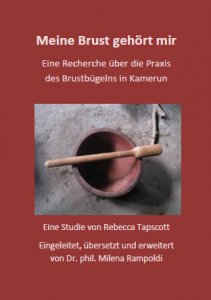
At
that time we had also published a lot of video transcriptions, by following the
objective to increase knowledge and empathy.
that time we had also published a lot of video transcriptions, by following the
objective to increase knowledge and empathy.
You
can find them on our blog www.promosaik.blogspot.de
can find them on our blog www.promosaik.blogspot.de
Now
I would like to give the word to Mag. Viviane Tassi Bela I interviewed about
breast flattening and its enormous risks for female health and beauty. For me personally,
breast flattening is a heavy violation of human rights and must be opposed to
by education and information.
I would like to give the word to Mag. Viviane Tassi Bela I interviewed about
breast flattening and its enormous risks for female health and beauty. For me personally,
breast flattening is a heavy violation of human rights and must be opposed to
by education and information.
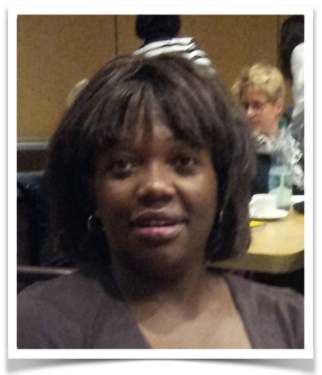
Viviane
Tassi Bela was born in Cameroon, grew up in France and lived more than 10 years
in Austria where she studied and obtained her major Certificates on Gender and Development.
Tassi Bela was born in Cameroon, grew up in France and lived more than 10 years
in Austria where she studied and obtained her major Certificates on Gender and Development.
She
has been working since many years as Gender Consultant and Women’s Empowerment
Officer with many German and Austrian Development Organizations operating in
Africa
has been working since many years as Gender Consultant and Women’s Empowerment
Officer with many German and Austrian Development Organizations operating in
Africa
(Cameroon,
Chad with communities near Nigeria and now in Rwanda) and technically supported
the activities of OHCHR focusing on Politic and Civil Rights of Women.
Chad with communities near Nigeria and now in Rwanda) and technically supported
the activities of OHCHR focusing on Politic and Civil Rights of Women.
She
is also Doctorate & PhD Researcher on issues related to Gender and
Leadership at the University of Liverpool – UK and also authors of a book
dealing with the Austrian Development strategy in the African bilateral countries
as well as author of numerous articles dealing with Gender and Development.
is also Doctorate & PhD Researcher on issues related to Gender and
Leadership at the University of Liverpool – UK and also authors of a book
dealing with the Austrian Development strategy in the African bilateral countries
as well as author of numerous articles dealing with Gender and Development.
Contact:
viviane@tassi-bela.net
or viviane.Tassibela@liverpool.ac.uk
or viviane.Tassibela@liverpool.ac.uk
Website:
www.tassi-bela.net
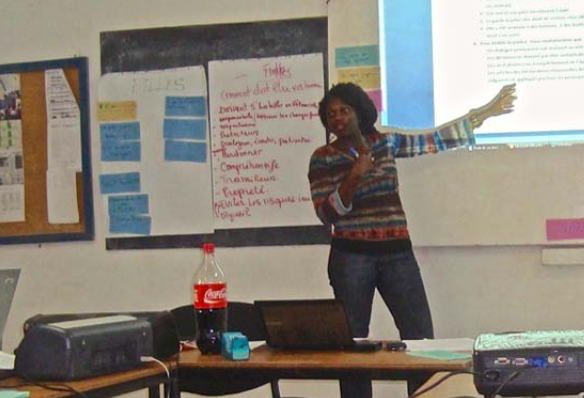
Dr.
phil. Milena Rampoldi:
phil. Milena Rampoldi:
ProMosaik
e.V. has dedicated many articles to the women in Cameroon who are victims
e.V. has dedicated many articles to the women in Cameroon who are victims
of
breast flattening.
breast flattening.
Our
objective is to make people understand how complex and difficult the situation
is: on
objective is to make people understand how complex and difficult the situation
is: on
one
hand women should be protected from rape and early pregnancy, on the other hand
hand women should be protected from rape and early pregnancy, on the other hand
breast
flattening just creates a new problem.
flattening just creates a new problem.
Can
you explain this tragic circle to our readers? What would you tell them about
the
you explain this tragic circle to our readers? What would you tell them about
the
tragedy
of breast flattening?
of breast flattening?
Mag. Viviane Tassi Bela:
Breast
ironing or breast Flattening also known as breast flattening or “Repassage des
seins”
ironing or breast Flattening also known as breast flattening or “Repassage des
seins”
is
a painful socio cultural practice and Women’s Rights violations observed in
Cameroon
a painful socio cultural practice and Women’s Rights violations observed in
Cameroon
but
also in countries like Chad, Benin, Nigeria and Guinea.
also in countries like Chad, Benin, Nigeria and Guinea.
In
all regions of Cameroon and particularly in the urban areas, this harmful and
traditional
all regions of Cameroon and particularly in the urban areas, this harmful and
traditional
practice
is very common. Women (often, in up to 58% of the cases, the girls’ mothers)
is very common. Women (often, in up to 58% of the cases, the girls’ mothers)
who use this
brutal and painful „massage“ technique on their young and pubescent daughters
brutal and painful „massage“ technique on their young and pubescent daughters
(usually the girls are under 10) initially observed that as soon as girls are
becoming
becoming
pubescent within a very challenging
socio cultural system where the development of
socio cultural system where the development of
breasts and other biological transformations
of the female bodies are related to
of the female bodies are related to
early sexuality, sexual harassment, rape, early
and child marriage, pregnancy and/or
and child marriage, pregnancy and/or
HIV, they are expected as mothers and care givers
to act and protect them from
to act and protect them from
these threatens.
Very
hot stone or any other heated wooden objects like spatulas or even hot leaves
are used
hot stone or any other heated wooden objects like spatulas or even hot leaves
are used
for
the traditional massage of the breasts with the aim at stopping their growth
and visibility.
the traditional massage of the breasts with the aim at stopping their growth
and visibility.
The
health consequences resulting from it are dramatic for the young victims. Many
girls
health consequences resulting from it are dramatic for the young victims. Many
girls
who
have undergone this painful and horrific practice are often suffering from
trauma and
have undergone this painful and horrific practice are often suffering from
trauma and
depression,
breast infection, malformed breasts, breast cancer and might not be able to
feed
breast infection, malformed breasts, breast cancer and might not be able to
feed
their
own children when becoming mother.
own children when becoming mother.

Dr.
phil. Milena Rampoldi:
phil. Milena Rampoldi:
I
am convinced that breast flattening is not a regional problem, but a problem of
all
am convinced that breast flattening is not a regional problem, but a problem of
all
women
who should care about it. What do you think about the idea? How can the
who should care about it. What do you think about the idea? How can the
international
community of women help women and girls in Cameroon?
community of women help women and girls in Cameroon?
Mag. Viviane Tassi Bela:
I think that it is very important to see all girls and women mobilized worldwide
against
against
this
harmful and traditional practice and urge local authorities in Cameroon for
concrete
harmful and traditional practice and urge local authorities in Cameroon for
concrete
actions
– laws – against it.
– laws – against it.
Women’s
Rights violations could not be seen nowadays in such a global system like our
as
Rights violations could not be seen nowadays in such a global system like our
as
a
regional issue . As woman or girl it is important to show an active solidarity
with those
regional issue . As woman or girl it is important to show an active solidarity
with those
experiencing
Human and Women’s Rights violations worldwide.
Human and Women’s Rights violations worldwide.
Local
civil societies in Cameroon have to be therefore actively supported –
technically or
civil societies in Cameroon have to be therefore actively supported –
technically or
financially
– by the international communities in their efforts against this situation at
– by the international communities in their efforts against this situation at
different
levels.
levels.
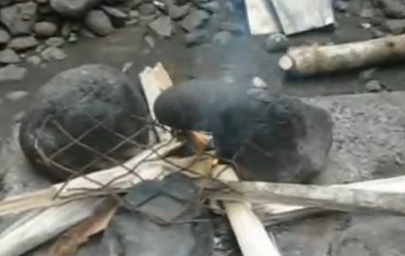
Dr.
phil. Milena Rampoldi:
phil. Milena Rampoldi:
Which
3 strategies are the most important to struggle against breast flattening?
3 strategies are the most important to struggle against breast flattening?
Mag. Viviane Tassi Bela:
–
Awareness Raising at local, regional, national and international levels
Awareness Raising at local, regional, national and international levels
– Technical
and Financial support to the local civil societies struggling against the
spread
and Financial support to the local civil societies struggling against the
spread
of
Breast ironing or breast Flattening
Breast ironing or breast Flattening
– Advocacy
at Decision making levels in Cameroon and in countries experiencing this
at Decision making levels in Cameroon and in countries experiencing this
harmful
practice
practice
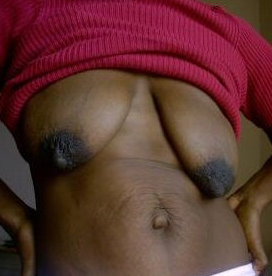
Dr.
phil. Milena Rampoldi:
phil. Milena Rampoldi:
What
must the State in Cameroon do to help women?
must the State in Cameroon do to help women?
Mag. Viviane Tassi Bela:
Local authorities in Cameroon and the ministry in charge on gender issues – the Ministry
for
the Promotion of Women and the Family – are aware of the problem and started
the Promotion of Women and the Family – are aware of the problem and started
awareness
raising campaigns in some urban communities but concrete actions – like a
raising campaigns in some urban communities but concrete actions – like a
specific
law – are still missing. The process of changing the mindset and socio cultural
law – are still missing. The process of changing the mindset and socio cultural
norms
and practices such as Breast ironing or other observed body mutilation that
affect
and practices such as Breast ironing or other observed body mutilation that
affect
Human
and Women’s rights is a long one that requires continuous efforts and have to
be
and Women’s rights is a long one that requires continuous efforts and have to
be
seen
as a priority in the local political agenda. At the moment the threat of Boko
Haram and
as a priority in the local political agenda. At the moment the threat of Boko
Haram and
its
security impact in Cameroon as well as the local economy in time of global
crises seem
security impact in Cameroon as well as the local economy in time of global
crises seem
to
be the main priorities.
be the main priorities.
It
is therefore important for the civil society in Cameroon to stay strong and
very active for
is therefore important for the civil society in Cameroon to stay strong and
very active for
social
issues affecting the Rights of Women and Girls – often the first victims of the
Socio
issues affecting the Rights of Women and Girls – often the first victims of the
Socio
and
Cultural Rights violations.
Cultural Rights violations.
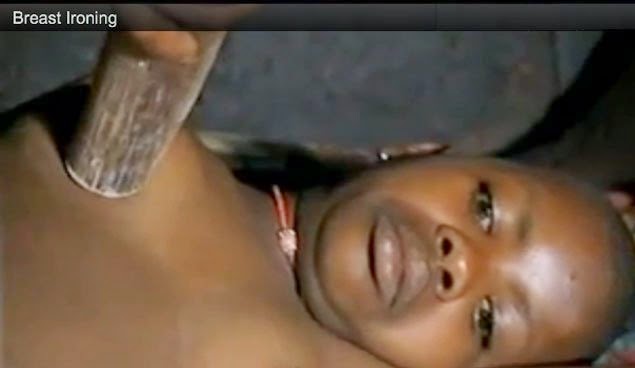
Dr.
phil. Milena Rampoldi:
phil. Milena Rampoldi:
In
an article I wrote about breast flattening that it is a female mutilation. What
do
an article I wrote about breast flattening that it is a female mutilation. What
do
you
personally think about it?
personally think about it?
Mag. Viviane Tassi Bela:
I
think that breast flattening is de facto a female mutilation but de jura, it is a Human and
think that breast flattening is de facto a female mutilation but de jura, it is a Human and
Women’s
Right violation!
Right violation!
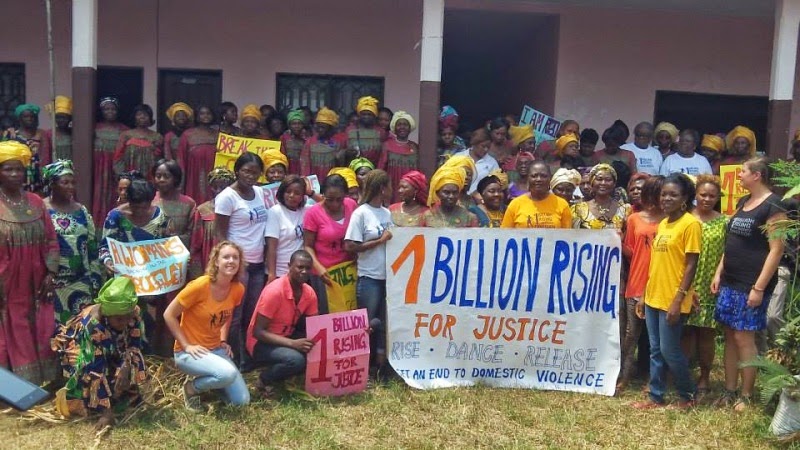
Dr.
phil. Milena Rampoldi:
phil. Milena Rampoldi:
How
can we educate men to respect women? What are the best strategies to avoid
sexual
can we educate men to respect women? What are the best strategies to avoid
sexual
violence
in Cameroon?
in Cameroon?
Mag. Viviane Tassi Bela:
Men
are part of the problem and should be also part of the solution! I advocated
the last
are part of the problem and should be also part of the solution! I advocated
the last
years
in my work for an inclusion of more men in all issues related to the
sustainable respect
in my work for an inclusion of more men in all issues related to the
sustainable respect
of
Socio Cultural and economic as well as politic and Civic Rights of Women
worldwide.
Socio Cultural and economic as well as politic and Civic Rights of Women
worldwide.
We
will never achieve a sustainable change if we still exclude around 50 % of the
will never achieve a sustainable change if we still exclude around 50 % of the
population
worldwide!
worldwide!
In
Cameroon, the involvement of men in dealing with socio cultural issues and
practices is
Cameroon, the involvement of men in dealing with socio cultural issues and
practices is
not
yet very common. I observed in my last assignment in Cameroon where I worked as
yet very common. I observed in my last assignment in Cameroon where I worked as
Gender
and Peace Building Officer that things are on the right path and these efforts
have to
and Peace Building Officer that things are on the right path and these efforts
have to
be
further supported.
further supported.
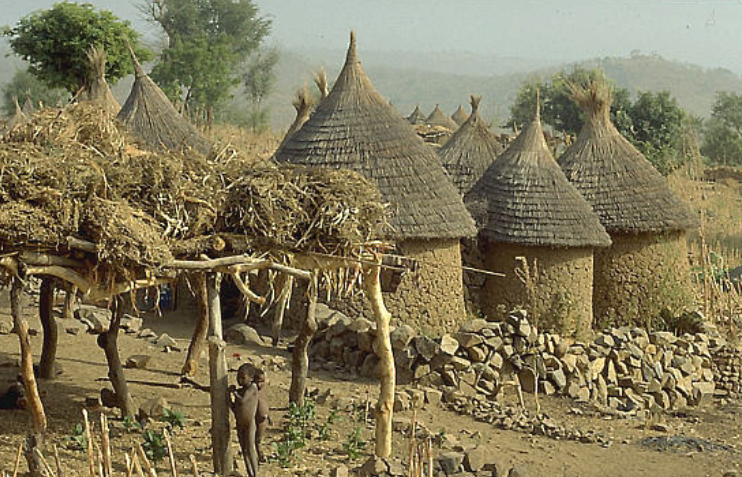
References:
Documentary
about my Gender and human Rights work dealing also with Breast Ironing or
about my Gender and human Rights work dealing also with Breast Ironing or
breast
Flattening:
Flattening:
http://okto.tv/edoc/3740/20100525
Thanks to you all for
reading and sharing and for fighting with us against breast flattening!
reading and sharing and for fighting with us against breast flattening!
The Editorial Team of
ProMosaik e.V.
ProMosaik e.V.


